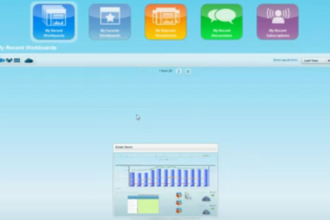ISPs are using data analytics in a variety of ways. Many consumers may be concerned about this, because they are known to exploit customer data. However, they use data in a number of benevolent ways, which many people will be okay with. Pew Research has shown most customers are okay with companies collecting their data if it is used for holistic purposes. This perspective extends to ISPs.
In 2017, many Americans became concerned over the new threats to online security and data privacy. An Obama-era protection was thrown out, allowing ISPs to sell your browsing history to advertisers, stating that it would allow ISPs to have the same privileges that Google and Facebook do. In a world where the term “Big Data” can mean so many things, have we considered the benefits of it on a consumer level?
The Power of Data Analytics
We have all condemned ISPs at some point or another, vilifying their actions to be all self-promoting, without helping out their customers. But there is more at play here. Data analytics have been used to help ISPs plan upgrades, address customer concerns, and even look at network issues before they have happened. Because of all of the information that is coming in, internet providers have a bigger view of your network’s situation, in order to help you better.
Customer Service
One of the most useful features you can get from big data with your ISP is improved customer service. This might not sound like much, but it can be incredibly frustrating to run into network or connectivity issues and have to sort out what is going on. If the ISP instead has better access to your information and your network, they can help you better in the long run. You might not even be able to articulate exactly what your concern is, but having them look for you can resolve the problem much quicker.
Faster Process
When new types of internet are being rolled out more commonly, such as fiber connections, there will need to be some kind of data collection to ensure that things are going smoothly. But even with existing connections, allowing the ISP to troubleshoot lags or any other slowdowns before they have become a bigger problem is integral to the continued increase in internet speed. Your internet provider can look where the lags are happening and try to work them out quickly and quietly, all without your notice.
Better Network Performance
Regardless of whether you have a Spectrum router or an Xfinity router, you will expect to get the most from your router. If your router is subpar, you will never get the type of performance that you really should be able to expect. If you run into issues with your router, you can always talk to customer service, which will then be able to see what is going on with your network, through the use of the data analytics collected.
Consumer
Let’s not leave out the consumer aspect of things. While you might not consider that your ISP selling your information to be a good idea, it is important to know that most do not do this. But, even if they do, imagine getting ads that are far more applicable to you. Instead of being suggested a product that has no place in your life, you might actually see recommendations that can benefit your lives. You might be able to do holiday shopping much faster when you know what products within your style and price range are available.
Privacy and Security
The most common question is: will I be safe with big data collecting data? There is a lack of privacy with big data. Gone are the days where you could blindly look online without interruption and observation. But at the same time, there are so many users that are online; no one is going to be concentrating hard on what you are doing online. Likewise, if someone is behaving poorly online, there could be enough evidence to ensure that he or she does not actually go so far as to harm anyone.
So while we might not be happy with the idea of big data, as long as we have to deal with it, let’s look at the good that it offers.
ISPs Can Use Big Data for Better Service
ISPs have gotten a bad reputation for mishandling customer data. However, they can use data for beneficial purposes, which can help them earn customer support.









